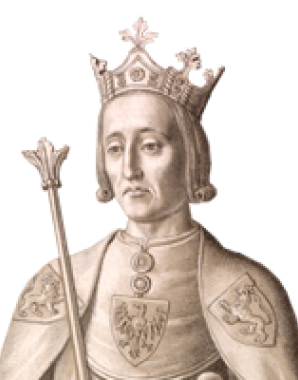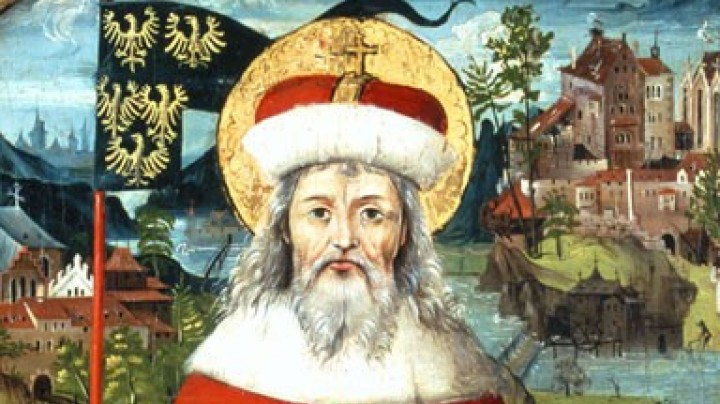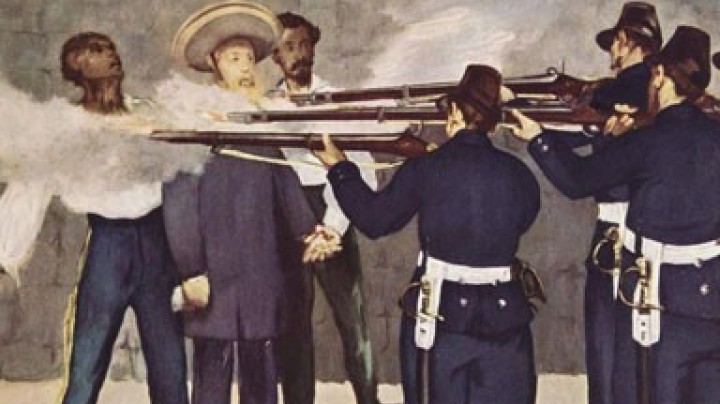King Ottokar’s Fortune and End
The Premyslid king Ottokar of Bohemia was far from being amused by the election of Rudolf of Habsburg as Roman-German King. Franz Grillparzer made the power struggle between the two rulers the subject of his historical tragedy ‘King Ottokar’s Fortune and End’.
The Bohemian king Ottokar II of the Premyslid dynasty, one of the mightiest princes of the Empire, disapproved strongly of election as Roman-German king of Rudolf of Habsburg, describing his rival as a ‘comes minus ydoneus’ or ‘ill-suited count’. In fact Rudolf was, like Ottokar, one of the Empire’s wealthiest and most powerful rulers. Furthermore, the college of electors had voted in Rudolf’s favour precisely in order to prevent Ottokar from becoming even more powerful.
Ottokar had assumed sovereignty in Austria and Styria following the death of the last Babenberg duke, Frederick II. In 1252 he married Margaret of Babenberg, who was Frederick II’s sister and also his heir, the Privilegium minus having specified that the duchy of Austria could also be inherited in the female line. Ottokar divided up the territory with Bela IV of Hungary and later divorced Margaret, who bore him no children. Ottokar also gained further possessions in the form of Carinthia, Carniola, and Friuli. He was constantly involved in power struggles; in Austria he met with resistance particularly from the rising burghers, notably Gozzo of Krems. The Austrian nobility forged pacts with the new Habsburg king in the hope of gaining greater power of self-determination.
In 1274, King Rudolf I met with a number of princes at the Imperial Diet in Nuremberg, intent upon taking repossession of all the imperial territories that had been lost. When Ottokar II refused to take the oath of allegiance, all his fiefs were revoked, including those of Bohemia and Moravia, and he was put under the ban of the Empire. The consequence was war. In August 1276, Rudolf took to the field against Ottokar with allies such as Count Meinhard II of Tyrol, Burgrave Frederick of Nuremberg, and the Archbishop of Salzburg. Only a few months later in November a peace was concluded in which Ottokar was officially re-enfeoffed with Bohemia and Moravia but had to give up Austria, Styria, Carinthia, and Carniola. The peace was sealed with a double wedding between sons and daughters of the two kings.
Rudolf now proceeded to spend a great deal of time in Vienna, which was unusual in this period of itinerant royal courts, though his position in Austria was not yet secured. The conflict with Ottokar was finally brought to an end on the field of battle. In August 1278 the two armies, each several thousand strong and led, as was customary, by the two kings in person, met near Dürnkrut and Jedenspeigen on the Marchfeld. Rudolf, by then already over sixty years of age, won the day and Ottokar was taken captive and killed, probably in an act of revenge on the part of a group of nobles.














